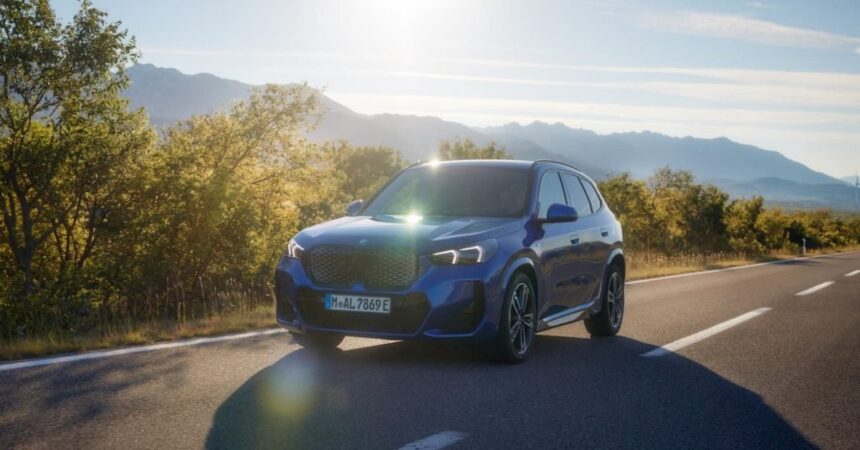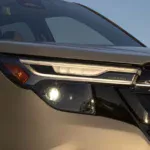BMW Group CEO Oliver Zipse suggests that it’s high time for the European Union to reassess its plan to phase out internal combustion engine (ICE) vehicles by 2035, arguing that such a drastic measure is premature and could have far-reaching consequences for the industry and consumers alike. Despite previous encounters with resistance, Zipse has taken his opposition to a new level, despite electric vehicle sales thriving for both BMW and Mini. What’s occurring right here?
At this year’s prestigious Paris auto show, one of the few remaining auto events with significant influence, Zipse told reporters that the EU must scrap its plan to phase out internal combustion engine vehicles by 2035 to reduce dependence on China’s battery supply chain, a move he deemed “absurd” and “completely unrealistic”.
BMW’s CEO sounds a warning note in Brussels, claiming an ICE ban is “unrealistic” due to sluggish EV demand and unsustainable subsidies, according to Bloomberg.
According to a Reuters report, Zipse noted that revising the 100% battery-electric vehicle (BEV) goal for 2035 as part of a comprehensive CO2-reduction package would also reduce European original equipment manufacturers’ dependence on China for batteries. “To maintain a profitable trajectory, it’s essential to adopt a technology-neutral approach across the entire coverage framework.”
By 2023, the European Union has enacted groundbreaking legislation mandating that all newly manufactured vehicles must achieve net-zero carbon dioxide emissions by 2035. As of April 2023, the European Union’s regulatory framework sets a cap on carbon dioxide (CO2) emissions for newly purchased vehicle fleets at 95 grams per kilometre (km), with van emissions limited to 147 grams CO2/km or less. Tightening guidelines for emissions are scheduled for 2025, when new car emissions will be capped at a maximum of 93.5 grams of CO2 per kilometre, while vans will be restricted to 153.9 grams per kilometre. By 2030, the European Union is poised to take a significant step forward in combating climate change by introducing stricter emission regulations. Specifically, from 2035 onwards, all newly purchased automobiles and vans within the EU will be subject to a ban on CO2 emissions, effectively accelerating the transition towards cleaner, more sustainable transportation options. As the deadline approaches, a sense of urgency is growing among traditional automobile manufacturers.
Zipse warns that Europe’s auto market could be severely impacted by a “substantial contraction” and potentially imperil the industry at its core if the ban is enforced.
As European automakers bask in the growing influence of Chinese manufacturers, it’s clear that the latter’s affordable battery-electric vehicles (BEVs) and plug-in hybrid electric vehicles (PHEVs) are claiming a significant chunk of the market share. Nine Chinese automotive manufacturers are showcasing innovative designs at the Paris Motor Show, with their products potentially subject to EU tariffs of up to 45% in response to alleged unfair subsidies provided by the Chinese government to its domestic automakers, according to the European Commission. Despite this, European carmakers continue to roll out new electric vehicles (EVs) to stay ahead of the curve, while Chinese manufacturers account for just one-fifth of exhibitors showcasing new models, a significant drop from half of all exhibitors in 2022.
Despite this, a distinctly pessimistic mood prevails across Europe, with Italy’s Prime Minister Giorgia Meloni labelling the ICE ban “self-destructive”. Germany has already rejected an early evaluation of the targets, while in Paris, the head of France’s auto association PFA is working on ways to revise those targets?
European gross sales of battery-electric vehicles (BEVs) and plug-in hybrid electric vehicles (PHEVs) declined by 4% during the initial nine-month period compared to the previous year, with BEV sales experiencing a more modest 12% annual growth in September alone. Despite a typical slowdown of the European auto market, gross sales plummeted by an alarming 18.3% in August alone.
If global automakers fail to meet stricter emission standards, they may face substantial penalties, potentially totaling up to $16.4 billion in fines. According to a Bloomberg analysis, BMW and Mercedes are expected to meet their targets this year, while Volkswagen, Stellantis, and Renault are likely to fall short, emerging late. As a result, Tesla has an emissions credit advantage that can help mitigate these penalties.











